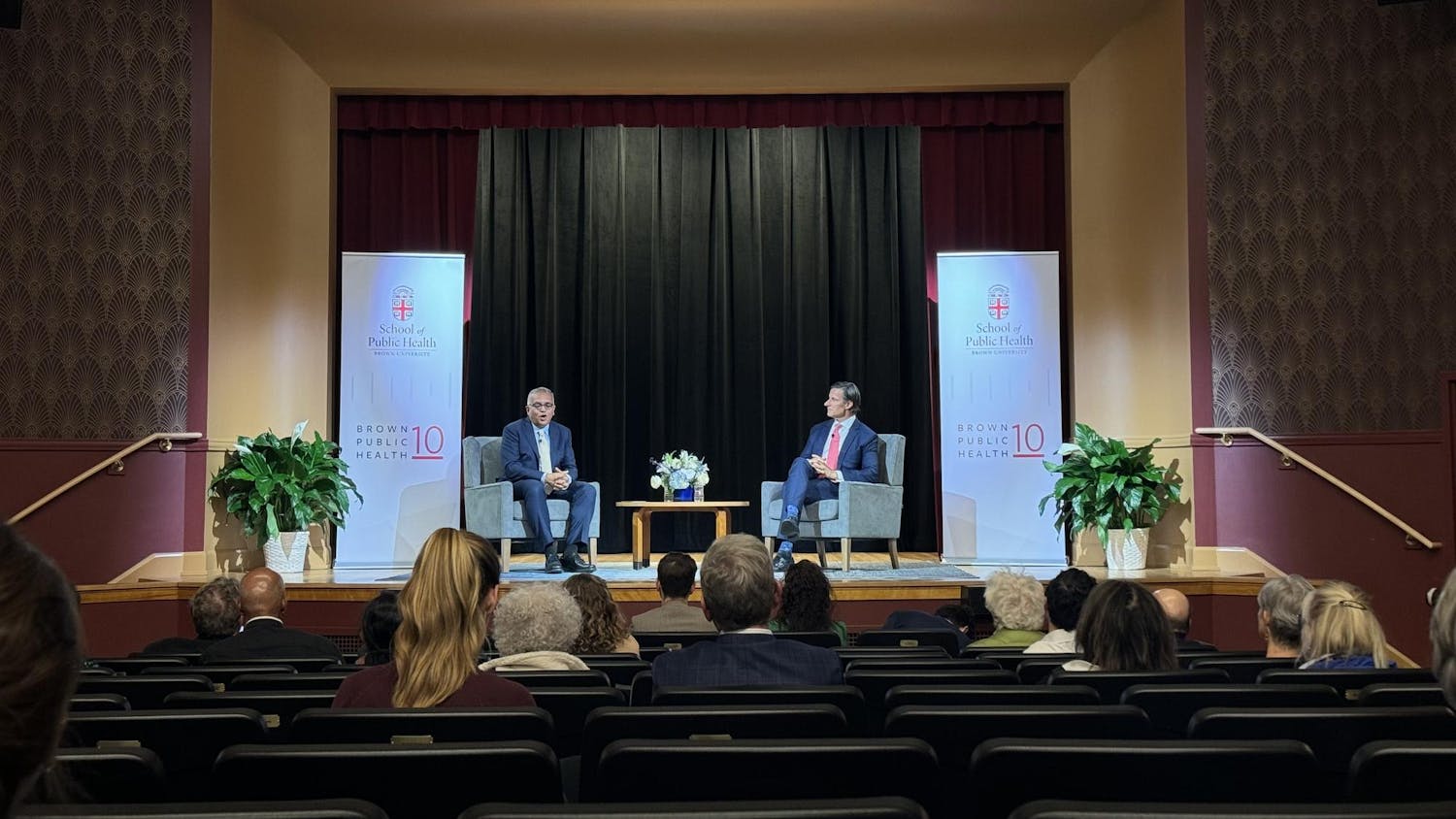At Brown, making money is a taboo subject, as most students don’t want to talk about pursuing their passion for profit. But making money isn’t a bad thing, Chief Technology Officer at Delphix Adam Leventhal ’01 told an audience of around 40 students and faculty members at a lecture Wednesday in the third-floor atrium of the Center for Information Technology.
The number of people who buy a product can often indicate whether the product is good or needs improvement. In this way, making money can be a barometer for quality, said Levanthal, whose company is a start-up venture that specializes in data management.
Leventhal kicked off the Life After Brown Series, an initiative by the Department of Computer Science that seeks to expose students to the careers and experiences they can obtain after graduation, said Tom Doeppner, associate professor of computer science and one of the organizers.
“Many students are not totally clear on what jobs computer science students get,” he said, adding that hearing stories from successful alums like Leventhal could help provide ideas to students.
Leventhal discussed his time as an undergraduate and the twists and turns of his career that led him to his current position at Delphix. He recounted his switch from a math to computer science concentration, the hours he spent in the CIT’s SunLab and the last semester he “barely” passed.
“There were always CS courses I poured my heart into,” he said. Leventhal helped design CSCI0170: “Computer Science: An Integrated Introduction” and was a teaching assistant for the course, despite the fact that he never took it, Doeppner said during his introduction.
After graduating from Brown, Leventhal began working at Sun Microsystems — a former computer software and information technology company — because he wanted to work on interesting problems and receive strong mentorship, he said. He added that he loved the good feeling he derived from solving a problem that a customer cares about.
Levanthal’s work also altered his perspective on computer science and software development, he said. “In the industry, you determine your own due date” and are expected to bring a high level of creativity to the workforce, he noted.
Brown impacted his career by providing him with communication skills, Levanthal said, adding that during his time at Sun Microsystems, he began to blog about his experiences as a programmer.
Being able to write well is a great skill to have because it involves clear thinking and organization. But too many technical students neglect the importance of this skill, Levanthal said.
Leventhal also highlighted the New Curriculum’s value in letting students “construct” their education, as this experience in “constructing” can be applied to developing a product in the workforce, he said.
Leventhal’s career took a turn when the large tech company Oracle took over Sun and Leventhal decided to leave the company. He didn’t want to just be another “code-monkey,” he said.
“Don’t be afraid to … take on other options,” he said, advising students to be open to changing their interests and finding jobs they enjoy doing.
After the change, Leventhal accepted a job at Delphix, where he rose up from a developer to a manager to the position of CTO, he said. During this process he faced tough decisions because he loved building things, he said, but managerial positions tend to be less hands-on.
Through this experience, Leventhal learned the importance of entrepreneurship, he said. While the traditional Brown culture should be preserved, students would benefit from an increased focus on entrepreneurship, he added.
After his presentation, Leventhal engaged in a question-and-answer session with the audience.
One audience member asked why computer science students who are offered comfortable jobs in companies such as Google or Facebook need to think about starting their own company.
Leventhal responded with something a colleague once told him — “hard problems aren’t solved by small companies.” But small companies have the unique opportunity of solving many problems that bigger companies may not think of, he said, adding that some students may find these problems stimulating.
Students said they enjoyed the lecture, and Surbhi Madan ’17 noted that she, too, wishes entrepreneurship played a bigger role at Brown.
After the presentation, Leventhal told The Herald he hoped students would gain appreciation for Brown’s uniqueness, something he didn’t realize until after he graduated. He praised the undergrad TA program in the CS department and undergrad research as two components to this unique experience.
“I loved my time at Brown, my time in the computer science department,” Leventhal said, noting his pleasure at returning. “It’s always exciting just walking on campus.”

ADVERTISEMENT




